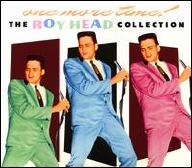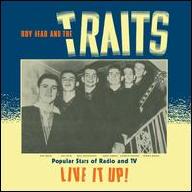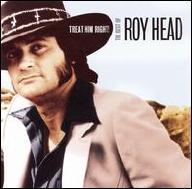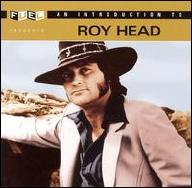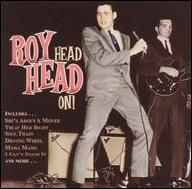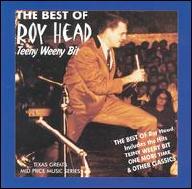Roy Head was born in Three Rivers, Texas, on January 9, 1941. In 1955, Head and his family left Three Rivers for San Marcos, and there he met a guitar player named Tommy Bolton, who attended the same high school. Head and Bolton formed a band, the Traits, who became one of the most popular acts on the early rock & roll scene in Texas. They scored several regional hits (including "One More Time," "Summertime Love," and "Live It Up") after signing with TNT Records (aka Tanner 'N' Texas) in 1959. Though they were still enrolled in high school, the Traits gigged frequently at sock hops, teen clubs, and university gigs around the state, though their age and class schedules prevented them from accepting a proposed booking on American Bandstand. In 1962, the Traits jumped to another Texas label, Renner Records, and several of their tunes were licensed for release on larger labels, including Scepter and Ascot.
In 1965, Head and the Traits signed a deal with producer and manager Huey P. Meaux, nicknamed "the Crazy Cajun," who struck a deal for the group with Back Beat Records, run by veteran record man Don Robey. Head's first single for Back Beat was "Treat Her Right," which exploded onto radio and went to number two on the pop singles charts. A song cut during Head's association with Scepter, "Just a Little Bit," was reissued after "Treat Her Right" hit and grazed the Top 40, topping out at 39, while his second 45 for Back Beat, "Apple of My Eye," peaked at 32. However, legal problems soon sidelined Head as he got into a contractual dispute with members of the Traits as well as various managers. One of his former bandmates, Gene Kurtz, once told a reporter, "He'd pretty much sign any piece of paper put in front of him." As Scepter continued to push older Roy Head tracks into the market while he was dealing with his legal troubles and cutting fresh material for Back Beat, Head's career quickly lost momentum, and while he released several singles in 1966, none charted higher than 88 ("Get Back"). A year after "Treat Her Right," Head's days as a rock hitmaker were over.
In 1968, after the dust had cleared, Head, now working without the Traits, left Back Beat to sign with Mercury Records for a handful of singles, and moved to ABC/Dunhill for the 1970 album Same People (That You Meet Going Up, You Meet Going Down). The record didn't click in the marketplace, and he next turned up on Steve Cropper's TMI label, which brought out 1972's Dismal Prisoner. By 1976, Head had shifted his focus from R&B-infused rock to country with a soulful undertow, and he released an album for ABC/Dot, Head First, that included the single "The Most Wanted Woman in Town." The song hit the country charts in both the United States (number 19) and Canada (number 7), and Head was once again a star. By the end of 1976, he'd issued another album for ABC/Dot, A Head of His Time, and his third LP for the label, 1978's Tonight's the Night, featured three more country hits: "Come to Me," "Now You See 'Em, Now You Don't," and a cover of Rod Stewart's "Tonight's the Night (It's Gonna Be Alright)." After the success of his releases for ABC/Dot, Head had no trouble finding a new record deal, with Elektra bringing out 1979's In Our Room and 1980's The Many Sides of Roy Head. However, the Elektra releases scored no major hits, and he left the label after a dispute with producer Jimmy Bowen, who had been behind the controls for most of his successful country sessions.
It would be 1985 before Roy Head released another album, Living for a Song, issued by the independent Texas Crude label; it included guest appearances from iconic guitarists Stevie Ray Vaughan and Lonnie Mack and fiddler Johnny Gimble. Head stuck to live work for the next decade-and-a-half, before 2011 saw the release of Still Treating 'Em Right, a lively set that included remakes of a few previous country hits, and 2012's Roy Head was a direct-to-lacquer LP of a live-in-the-studio session. Meanwhile, his son Sundance Head was developing a fan following of his own, serving as a contestant on American Idol in 2007 and winning the grand prize on The Voice in 2016. In 2019, Roy Head's greatest hit gained a new audience when Quentin Tarantino used it to accompany the title sequence in his film Once Upon a Time…in Hollywood. Roy Head died following a heart attack on September 21, 2020 in Montgomery County, Texas at the age of 79. ~ Mark Deming, Rovi


